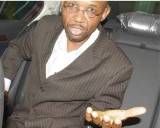FEMI OWOEYE
Year 2023 was a continuation of bumpy and dark alleyway through which the nation’s automobile industry travelled for eight years.
For the nation’s automobile buyers and users, 2023 represented a Year of Hike. For, early January, motorists were slammed with a 200% increase on premium payment for third party vehicle insurance, hiking from N5000 to N15000.
The crescendo was fuel subsidy removal, resulting in another over 200% increase in fuel pump price.
Following the latter, Motoring World’s search revealed that many multiple vehicle owners have since stuck to one, parking the rest at home.
A development that more clearly mirrored the state of the nation’s auto industry during the year under review was a significant drop in new vehicle launch during the year.
Unlike the previous year, less than 5 new vehicle launches were recorded. For instance, Coscharis Motors Plc launched the 2023 Ford Territory.
Significantly, Toyota Nigeria Limited’s over three decades of being sole representative of Toyota brand in Nigeria changed, as CFAO Motors became the second official distributor of the Japanese brand in the country.
In a related development, Mikano Motors, with fanfare, celebrated its appointment as the nation’s official representative of Changan, an automobile brand erstwhile represented in Nigeria by Stallion group.
The company, during the grand event, vowed to, from this year, commence a Changan’s CKD Assembly plant. Unfortunately, Mikano’s marriage with Changan marred its relationship with Geely automobile, a brand it had turned to a success in Nigeria.
Notably, 2023 ushered Cherry Automobile brand into the country. Carloha Nigeria, a high-flying automobile company, was appointed the brand’s exclusive authorized dealer. As a result, Carloha is expected to roll into the nation’s market full range of Cherry models, including SUVs, Sedans, and electric vehicles.
The Bad
The nation’s auto industry depression continued through 2023, mainly because, like his predecessor, former president Muhammadu Buhari failed to sign into law the National Automobile Industry Development plan (NAIDP) bill. As a result, the industry was so depressed that that most of the auto assemblers turned to FBU vehicle importers/dealers.
One of the anti-auto industry development moves of Buhari’s regime was the 2020 Finance Act, which cut down import duties on imported vehicles, a stab on the heart of the proposed NAIDP.
Of course few weeks before his departure, President Buhari announced an increase in Levy on Imported Vehicles, excluding vehicles below 2000cc, mass transit buses, electric vehicles, and locally manufactured vehicles, a move unlikely to benefit the auto industry until the NAIDP is signed into law.
Another Buhari regime’s last minute development was the commissioning of an Automotive training centre in Ekiti State. An initiative of the National Automotive Design and Development Council (NADDC), the Ado-Ekiti Training centre, one of the 21 earmarked for the six geopolitical zones of the country, was set up to train Nigerians to maintain and service modern vehicles as well as manufacturing of spare parts. This also was tantamount to implementing the NAIDP in piecemeal.
Ray of Hope?
However, although president Tinubu started his regime with a painful fuel subsidy removal, the regime’s newly inaugurated National Economic Council (NEC) approved a move by the NADDC to begin mass production of Electric and CNG (Compressed Natural Gas) -powered vehicles in the country.
Impressively, the Council made a case for funding towards development of what they described as the Ultimate Nigerian Vehicle. The council canvassed for legislative support to provide dedicated funding for the Vehicle Finance Scheme with special emphasis on EV and CNG vehicles, to pave way for the affordable purchase of locally produced vehicles by Nigerians, thereby boosting production and growth of the sector. In other words, the council is aware of the importance of signing into law the NAIDP, which contains all their proposals and more.
To this end, president Tinubu sacked the erstwhile NADDC boss, Jelani Aliyu, replacing him with a more relevant auto industry stakeholder, Mr. Joseph Osanipin.
Incidentally, unlike his predecessor, who was sourced from abroad, Osanipin was poached from within the nation’s auto industry. Before his appointment, Osanipin had been the Chief Operating Officer (COO) of Jet Systems Auto Company, a Nigerian indigenous firm at which he successfully developed processes and built strategic partnerships that led to the emergence of some of the first set of home-grown electric vehicles to come out of Africa.
At his first parley with the motoring media during the 2023 NAJA Auto Industry awards, Osanipin did not only feel at home, he exuded confidence and passion about one of the issues that are germane to the NAIDP. He firmly challenged the nation’s automobile assemblers to start sourcing local content. And when answering questions from journalists, he stressed the commitment of President Tinubu’s administration to shoving out all obstacles on the road to developing the nation’s automobile industry.

From all indications, President Tinubu’s appointments, policy initiatives and body language indicate that, from the year 2024, the nation’s auto industry might be on its way out of the dark and bumpy alleyway into a bright and blooming highway of growth.
Legalizing and implementing the NAIDP without delay is the key.
©Copyright MOTORING WORLD INTERNATIONAL. All rights reserved. Materials, photographs, illustrations and other digital content on this website, may not be reproduced, published, broadcast, rewritten or redistributed in whole or in part without prior written permission from Motoring World International
Contact: editor@motoringworldng.com




